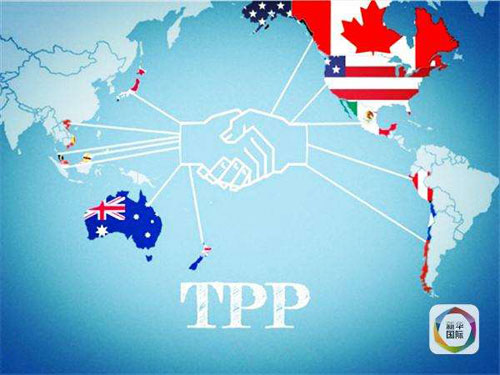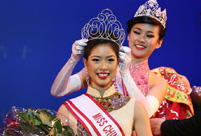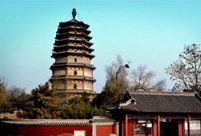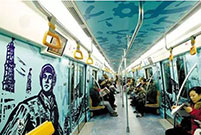

 |
A special summit between the U.S. and ASEAN leaders was recently held in California, during which U.S. President Barack Obama included the Trans-Pacific Partnership (TPP) on agenda.
In his speech, Obama claimed that in joining the U.S.-led TPP, Singapore, Vietnam, Malaysia and Brunei have committed to high labor and environmental standards.
As another example of Obama talking about the TPP when coming to the topic of U.S.-ASEAN cooperation, it reveals the great importance the superpower attaches to the framework.
However, the U.S. ignored the fact that only 4 out of the 10 ASEAN members have signed up for the TPP.
It seemed that the U.S. has portrayed the “high standards” as a “golden front” for a trans-regional trade deal. But what’s worth mentioning is that the U.S. labeled the so called “high standards” just to serve its own interests.
In his statement after the TPP negotiation, Obama claimed that TPP allows America-and not countries like China-to "write the rules" in the 21st century.
Grand as the goal is, the U.S.is being unrealistic.
Specifically, the U.S. cannot exclude China from economic cooperation.
Take the ASEAN as an example, Obama is rather proud that the U.S.-ASEAN trade volume has increased 55 percent since he took office, but statistics from the U.S. Government Accountability Office (GAO) show that in 2014, the trade volume between China and ASEAN reached $480 billion, double that between the U.S. and ASEAN.
With an combined economic output of about $11.4 trillion, the China-ASEAN Free Trade Area (FTA) has become a significant market covering a population of nearly 2 billion.
China is the largest trading partner of the ASEAN whereas the ASEAN is China’s third largest trading partner, fourth largest export market as well as the second biggest source of imports.
With the upgrade of the FTA, bilateral economic cooperation will embrace a promising future.
From a macro perspective, the U.S. cannot stop China from playing a role in writing international rules. After years of steady growth, China has become more important in global stage.
China’s proposal to build the Silk Road Economic Belt and the 21st-Century Maritime Silk Road was echoed by many countries.
So far, more than 20 countries have signed cooperation agreements with China, and another dozen reached cooperation consensus, therefore an international production capacity cooperation framwork covering Asia, Africa, Latin America and Europe is gradually taking shape.
China’s FTA construction also achieved remarkable results. In 2015, China signed free trade agreements with South Korea and Australia, both of which are major Asia-Pacific economies.
In addition, the China-led Asian Infrastructure Investment Bank (AIIB) has 57 founding members covering five continents.
With increasing competitiveness, China will certainly air more voice and have more say in writing international rules.
What’s more important is that the U.S. should realize China’s success is not based on hegemony or resource domination.
When the U.S. is excluding others such as China, China pursues a philosophy of openness, transparency and inclusiveness. China believes that the global trade rules should be drafted by all countries rather than only a few.
When cooperating with other countries, China takes their concerns into account and does its best to ensure maximum mutual benefits.
The “Belt and Road” initiative, for instance, is never a geopolitical tool for China to establish its sphere of influence.
China’s proposals are well echoed because it always seeks mutual benefits and never imposes its will on others.
China never opposes its partners like the ASEAN to launch cooperation with the U.S., but won’t allow other countries to viciously interfere in its legitimate cooperation either.
The Asia-Pacific region and the world are large enough. Openness and inclusiveness are the proper demeanors for a major country.
(This article is edited and translated from 开放包容才是大国风范 Source: People's Daily Overseas Edition. The author is an expert on international studies.)
 2016 Miss Chinatown USA pageant held in San Francisco
2016 Miss Chinatown USA pageant held in San Francisco Ancient pagodas across China
Ancient pagodas across China Beijing Film Academy starts 2016 entrance exam
Beijing Film Academy starts 2016 entrance exam Wedding dress show up in the air
Wedding dress show up in the air Have you ever taken these beautiful subways in China?
Have you ever taken these beautiful subways in China? Russian photographer brings fairytales to life
Russian photographer brings fairytales to life Chinese beauties, foreign models meet in Chengdu
Chinese beauties, foreign models meet in Chengdu Awesome! Aerial pictures taken on J-11 fighter
Awesome! Aerial pictures taken on J-11 fighter A foreign girl explains what China should be proud of
A foreign girl explains what China should be proud of Top 20 hottest women in the world in 2014
Top 20 hottest women in the world in 2014 Top 10 hardest languages to learn
Top 10 hardest languages to learn 10 Chinese female stars with most beautiful faces
10 Chinese female stars with most beautiful faces China’s Top 10 Unique Bridges, Highways and Roads
China’s Top 10 Unique Bridges, Highways and Roads Shooting threat mixes online, offline violence
Shooting threat mixes online, offline violence Chinese peacekeepers face violence, food shortages on UN mission
Chinese peacekeepers face violence, food shortages on UN mission Regulations concerning menstrual pain leave a step in the right direction
Regulations concerning menstrual pain leave a step in the right directionDay|Week